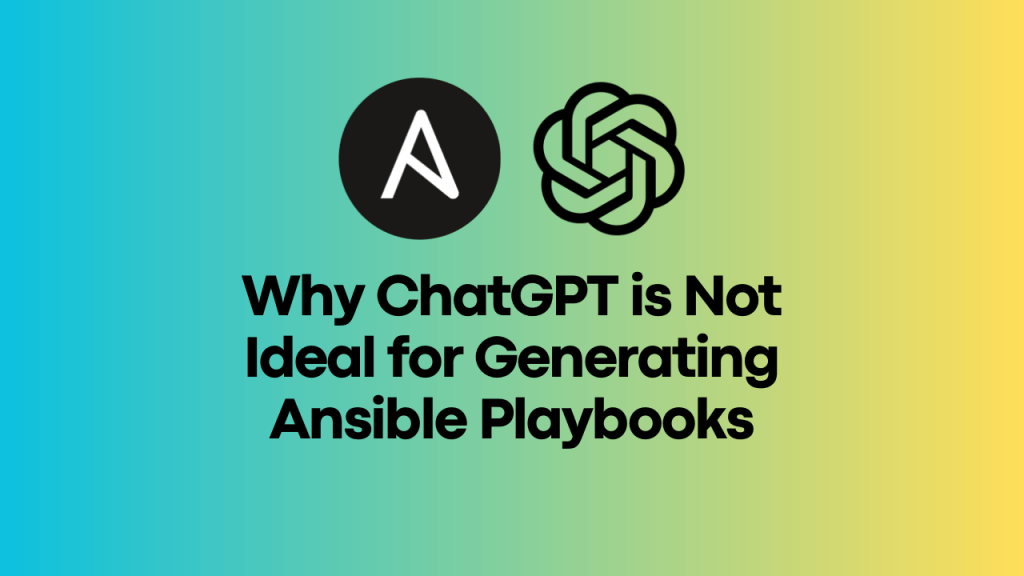
Ansible is a popular automation tool used in IT operations and DevOps to manage infrastructure and automate repetitive tasks. It is designed to be simple and easy to use, even for those without a programming background. Ansible playbooks are YAML files that describe the steps required to automate a particular task or set of tasks.
Also, check Ansible Courses and certification exams.
While ChatGPT is a powerful language model that can understand and generate natural language, it is not a perfect fit for writing Ansible playbooks. Here are some reasons why:
Lack of Context Awareness:
Ansible playbooks require a deep understanding of the infrastructure being managed and the tasks being performed. ChatGPT is a language model that has not been specifically trained for infrastructure management or Ansible syntax and therefore lacks context awareness. This can result in the generation of playbooks that are incorrect, inefficient, or even dangerous.
Limited Control Flow:
Ansible playbooks often require conditional statements and loops to control the flow of tasks based on certain conditions or outcomes. ChatGPT, however, does not have the ability to execute conditional statements or loops, making it difficult to generate playbooks with complex logic.
Inability to Validate Syntax:
One of the most critical aspects of writing Ansible playbooks is ensuring that the syntax is correct. Syntax errors can lead to failed deployments or even damage to infrastructure. ChatGPT does not have the ability to validate Ansible syntax, making it more challenging to generate correct playbooks.
Limited Integration with Existing Infrastructure:
Ansible playbooks often need to integrate with existing infrastructure, such as monitoring tools, authentication systems, and configuration management databases. ChatGPT does not have the ability to integrate with these tools or systems, making it difficult to generate playbooks that can work seamlessly with existing infrastructure.
Security Risks:
Ansible playbooks often require the use of sensitive information, such as passwords, keys, and certificates. ChatGPT, being a cloud-based service, raises potential security concerns when generating playbooks that contain sensitive data. This is because sensitive data can be exposed if not properly handled, leading to security breaches or data leaks.
In conclusion, while ChatGPT is an advanced language model with remarkable natural language processing capabilities, it is not suitable for generating the perfect Ansible playbooks. The lack of context awareness, limited control flow, inability to validate syntax, limited integration with existing infrastructure, and security risks make it unsuitable for this task. Instead, Ansible users utilize the ChatGPT to learn and understand the usages, getting Ansible playbook skeleton and so on.
